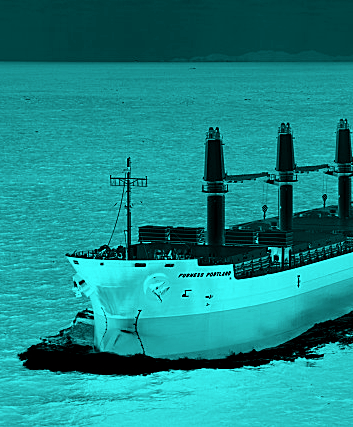Boat regulation probed
 A senate hearing has heard maritime safety standards are being compromised because the peak regulator is too busy.
A senate hearing has heard maritime safety standards are being compromised because the peak regulator is too busy.
The Federal Government is holding a Senate inquiry into the performance of the Australian Maritime Safety Authority (AMSA).
The inquiry was launched following the death of a man who fell off a charter boat in Western Australia in 2014.
International Institute of Marine Surveying (IIMS) chief Mike Schwarz said in his submission the “situation in Australia is well outside of international norms for this sector and task”.
AMSA issued its own statement disagreeing, saying it is committed to “modern risk-based regulation”.
“A part of our regulatory approach is to deliver simple legislation and administrative process that do not unnecessarily restrict or burden the regulated community,” it stated.
Mr Schwarz AMSA’s messaging as contradictory, confusing and written in “quasi-legal language”.
“This points, in our view, to a deep cultural malaise which has the very real potential to harm and which, in our view, needs serious and deep reform,” he submitted.
Mr Schwarz used as an example a legally-binding condition on a certificate of survey issued to a vessel owner.
It read: “Any conditions listed on your existing certificate of survey remain in force even though they are not listed on this updated certificate”.
“This bizarre condition, in our view, encapsulates neatly AMSA's muddled thinking and illustrates the confused manner in which it is approaching their critical safety mission,” Mr Schwarz said.
He said IIMS had evidence of “many instances where potentially serious accidents and incidents are not being investigated”.
“This means that AMSA cannot use data gathered to improve safety standards and therefore represents a major missed opportunity,” he said.
“It is the view of the IIMS that this well-resourced agency should refocus its efforts away from processing paperwork to getting into the field and finding out what safety issues are extant and then working with industry to rectify any matters that arise.
“Reduction of bureaucracy is anathema to bureaucrats, so we submit there needs to be clear direction given from the legislators that sets this system into law for them to do so.”
Mr Schwarz stated that AMSA revised a marine order in 2018 to reduce the frequency of formal surveys or inspections a vessel can be subjected to throughout its working life. IIMS members make up about 12 per cent of AMSA accredited surveyors.
AMSA said inspections have not changed since changes were made to the order.
Mr Schwarz also said AMSA appears to be bogged down in red tape, paperwork and a complex system for processing simple decisions.
“One of our members reports and has proof that over 70 pages of AMSA forms are now required to bring a standard new vessel into operation,” he said.
“Why the regulator needs to know how many seacocks are on a given vessel, or what the specification of a seating cushion is, is beyond the understanding of our surveyors.”
AMSA says it is reducing red tape and the number of documents it requires.
“This important vessel data will enable surveyors to detect unapproved modification of the vessel at subsequent survey which we know has given rise to significant issues in the past,” it stated.
The inquiry continues.







 Print
Print